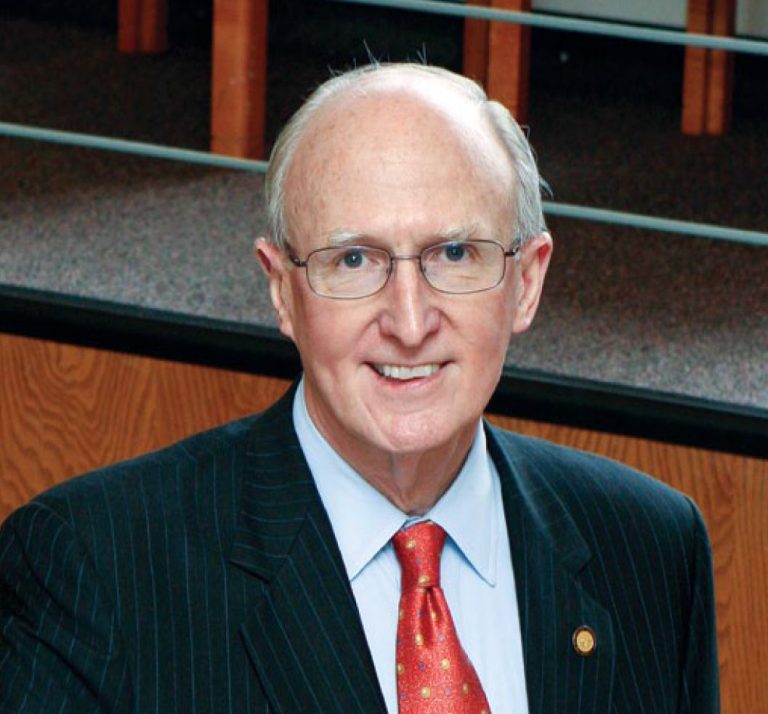
By Robert A. Scott
The review of the Philharmonic’s performance said the cellist performed with “playful” dexterity. The review of a new book about Nixon, Kissinger, and wars in Southeast Asia said that in it “We see North, South, and West in “play” together. To take advantage of another can be “playing on fears,” a far cry from being “playful” and fiddling around.
When I performed as Joe Stoddard, the Undertaker, in the student production of “Our Town” at Adelphi, I was asked what it was like to act in a “play.”I frequently attended Adelphi athletic events and watched our teams play. When I visit my grandchildren, we play. What is “play?”
The word “play” has many definitions, but the one I emphasize here is child’s play and its importance. Play is joyful, a burst of fun. It is the voluntary engagement of the imagination. It is the spontaneous activity of children, usually absent any serious intent or adult supervision. Unlike organized sports, play is self-directed and involves kids choosing sides according to local norms.
Play provides for building friendships, allows for fantasy, and requires communication. It can expose the child to diversity in its many forms; it can enhance empathy, i.e., putting oneself in another’s shoes. Play is essential for developing resilience, courage, cooperation, independence, and inquisitiveness. It helps build healthy bodies, active minds, and generous spirits as well as mental, physical, and emotional capabilities.
I recall pick-up games; the yo-yo; hitting tennis balls against the garage; and shooting marbles. I remember having more fun with the box a toy came in than with the toy itself; building a log cabin — partially, that is — with Uncle Harold’s prized young pine trees I had cut down. At play, I imagined I could fly; debated big issues, taking both sides, while walking across town; caught fish with a safety pin tied to a string, with a pinecone as a floater, a stone as a weight and freshly dug worms as bait.
The start of each baseball season revives memories of childhood pick-up games when as young kids we would choose sides, set the rules and arbitrate disputes. We learned teamwork and leadership, honed our skills and abilities, and developed a set of values. We learned that the sides should be equal, that everyone should play, that we could resolve our disputes without outside interference or advice and that having fun was the goal.
For those of us who are or were adult volunteers or spectators for youth sports, the start of the season also reminds us of how parental involvement and the corporate organization of children’s games have stolen some of that joy. Travel teams, all-star status, and league standings are a far cry from neighborhood fun. As a parent with children in T-Ball, I tried to restrain these efforts. As a college president, I enjoyed our teams and urged them to emphasize the joy of play.
I recall these and other memories of play, as a child, as a parent, and as a grandparent, and tell stories about them. I can do this because of the impressions these memories made on me, enhanced by family photographs and my mother’s poems. She wrote one she called, “Your Boy”. (Ann Waterman Scott, New England Homestead, November 8, 1947.)
Your Boy
“Have you a boy about seven years old,
Who frequently does just as he has been told,
But in spite of all effort will shape to the mold
Of a bandit?
Do you also wonder if your boy will ever
Put any speediness in his endeavor,
Although he be most self-reliant and clever,
But stubborn?
Are you on the verge of losing your mind,
Over his questions of every kind,
From “Where is heaven?” to “What is a mind?”
And “Why is it?”
Is he now an Indian off on the run,
Then maybe a cowboy with a holster and gun,
At practically any time ready for fun,
Or a movie?
Does he make pets of plain earth worms and ants;
Continually does he prattle and prance;
Outgrow all his shirts and his socks and his pants,
Or need patches?
After you’ve punished him, could you just weep,
When he says “Sorry, Mom,” before going to sleep,
And signals a message you always will keep,
That he loves you?”
Word pictures and family photographs help rekindle the mental images of a child’s play. I rejoice in them all; they helped shape who I am. Encourage children to play. Support neighborhood playgrounds.
Robert A. Scott is president emeritus of Adelphi University







beautiful bob, thx for sharing.
Scotty,
I really liked your article on play. Right on target. When I taught I always took time out from instructions to play with my students. They loved those games and we certainly bonded. Example, a student I taught, 6th grade, back in 1973, got in touch with me. She lives in Vero Beach ,we are at our condo in WPB,. They drove down and took us out for lunch. Among the snippets she talked about was, “We had such a positive environment in your classroom. We learned a lot and had happy times playing in between lessons!” As you said, play has a very important place in the lives of children (I would add adults too). What a shame that I not a part of school today. Kindergarten, “Children’s garden” has no time for play? It has become a room where youngsters have a curriculum forced on them, not by teachers but by the States’ Regents ( some of which have never been in a classroom) so 5 year olds can be prepared for TESTS!
Very sweet. Thank you!